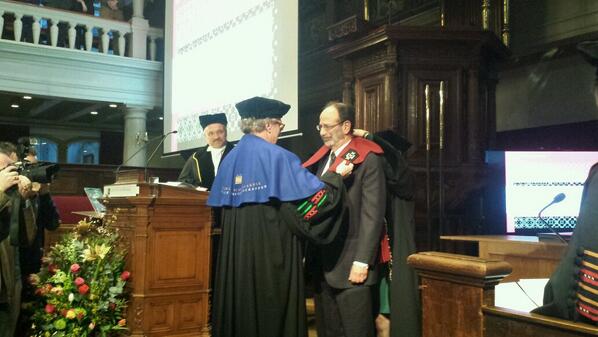Not long ago I had a chance to listen to some interesting presentations at a conference sponsored by Greylock Partners, about businesses that aim to make marketplaces: As Marketplaces Evolve, Greylock Places Its Bets
Leena Rao writes:
"The idea of marketplaces as a business model for technology startups isn’t new. We saw some marketplaces go belly up in the bubble, and saw a few, like eBay, grow into massive businesses. However, the marketplace model has experienced a renaissance of sorts lately, with companies like Airbnb, Uber and others gaining serious traction and becoming billion-dollar-plus businesses.
Leena Rao writes:
"The idea of marketplaces as a business model for technology startups isn’t new. We saw some marketplaces go belly up in the bubble, and saw a few, like eBay, grow into massive businesses. However, the marketplace model has experienced a renaissance of sorts lately, with companies like Airbnb, Uber and others gaining serious traction and becoming billion-dollar-plus businesses.
Greylock Partners held a conference in mid-November devoted to talking about design, product development, the economics and more around marketplaces, spearheaded in part by the firm’s newest partner and former eBay Motors creator, Simon Rothman.
As part of its new $100 million commitment to investing in marketplaces, Greylock assembled Reid Hoffman, Airbnb co-founder and CEO Brian Chesky, eBay CEOJohn Donahoe, Nobel Prize Laureate and marketplace expert Alvin Roth, and many others to discuss the rise of marketplaces and much more. I was able to sit down with some of the speakers to talk about their thoughts on why marketplaces are hot right now.
Hoffman, who founded LinkedIn and was an early investor in Facebook, sees many parallels between networks and marketplaces. On the similarities in both models, he says: “There’s a question of how do you identify people? What reputational systems underlie it? What kinds of information and signaling? What kind of transactions go public? There’s some differences, too, but it’s essentially a similar brain activity.”
As for why marketplaces are getting more attention now, Hoffman believes that it’s in part due to mobile and the progression in human behavior. “Now everyone is comfortable with the notion of, ‘Oh, I could actually find someone I don’t know and transact with them, either as travelers, hosts, sellers, buyer.’ Those that can actually work mean that I have some trust in these mechanisms,” he explains further.
Rothman agrees with Hoffman, and told me that trust is a huge element of why marketplaces have evolved, as well as the biggest challenge for these marketplaces. “They’re really selling trust. And until the web adds social identity, I think creating trust at scale is really hard. As we’ve heard, marketplace is about influence, and if you can’t control the experience, if you can’t control the product, you can’t control the fulfillment. All you can control is trust and you need to have that. And then mobile is an accelerant to that. If you are a local market, or a local business, you have to have mobile. There’s just no way Uber works without mobile,” he says.
...
So how do marketplaces add trust? Hoffman advises to look at mechanisms by which you can essentially borrow some trust and add it to the product, such as using social networks or identities. He recalled a product development from his PayPal days, where an engineer developed a better way to authenticate bank accounts.
For years, in order to authenticate a bank account you had to send in a voided check, and a copy of your drivers license. PayPal realized that if they wanted to get to scale, the company would have to make it easier to create accounts. “If we can’t solve this problem, we basically don’t have an interesting business model,” he said. One of the early engineers developed a way to send two sub-dollar transactions to the account, to create a PIN of sorts for instant verification.
While friction is something most marketplaces want to remove, Rothman argues that some should consider “the concept of strategic friction” when it comes to trust and safety. He thinks it’s one of the only places where friction is not only tolerable but kind of desirable.
...
"Hoffman says that Airbnb was creating liquidity out of space. Even if the hosts didn’t own their real estate, the liquidity involved is “hugely valuable and motivating to them.” So, they’ll adopt mobile products, and go through hoops to make that happen. “There was no question that this is going to work,” he says.
...
Now that Greylock is allocating some of its new $1 billion in funding toward the marketplace model, we’ll be looking to see where the firm will be placing its bets. Rothman thinks that in the next five years there will be more $1 billion dollar marketplaces than there were in the past 20 years, and we already have quite a few that are rising fast. Stay tuned."




